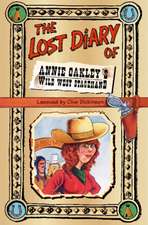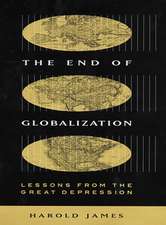1831: Year of Eclipse
Autor Louis P. Masuren Limba Engleză Paperback – 31 ian 2002
1776, 1861, 1929. Any high-school student should know what these years meant to American history. But wars and economic disasters are not our only pivotal events, and other years have, in a quieter way, swayed the course of our nation. 1831 was one of them, and in this striking new work, Louis Masur shows us exactly how.
The year began with a solar eclipse, for many an omen of mighty changes -- and for once, such predictions held true. Nat Turner's rebellion soon followed, then ever-more violent congressional arguments over slavery and tarrifs. Religious revivalism swept the North, and important observers (including Tocqueville) traveled the land, forming the opinions that would shape the world's view of America for generations to come. New technologies, meanwhile, were dramatically changing Americans' relationship with the land, and Andrew Jackson's harsh policies toward the Cherokee erased most Indians' last hopes of autonomy. As Masur's analysis makes clear, by 1831 it was becoming all too certain that political rancor, the struggle over slavery, the pursuit of individualism, and technological development might eclipse the glorious potential of the early republic--and lead the nation to secession and civil war. This is an innovative and challenging interpretation of a key moment in antibellum America.
The year began with a solar eclipse, for many an omen of mighty changes -- and for once, such predictions held true. Nat Turner's rebellion soon followed, then ever-more violent congressional arguments over slavery and tarrifs. Religious revivalism swept the North, and important observers (including Tocqueville) traveled the land, forming the opinions that would shape the world's view of America for generations to come. New technologies, meanwhile, were dramatically changing Americans' relationship with the land, and Andrew Jackson's harsh policies toward the Cherokee erased most Indians' last hopes of autonomy. As Masur's analysis makes clear, by 1831 it was becoming all too certain that political rancor, the struggle over slavery, the pursuit of individualism, and technological development might eclipse the glorious potential of the early republic--and lead the nation to secession and civil war. This is an innovative and challenging interpretation of a key moment in antibellum America.
Preț: 106.20 lei
Nou
Puncte Express: 159
Preț estimativ în valută:
20.32€ • 21.22$ • 16.82£
20.32€ • 21.22$ • 16.82£
Carte tipărită la comandă
Livrare economică 04-18 aprilie
Preluare comenzi: 021 569.72.76
Specificații
ISBN-13: 9780809041190
ISBN-10: 0809041197
Pagini: 272
Dimensiuni: 137 x 206 x 20 mm
Greutate: 0.25 kg
Ediția:Reprint
Editura: Hill & Wang
ISBN-10: 0809041197
Pagini: 272
Dimensiuni: 137 x 206 x 20 mm
Greutate: 0.25 kg
Ediția:Reprint
Editura: Hill & Wang
Notă biografică
Louis Masur, a professor of history at the City University of New York and the editor of Reviews in American History, is the author of Rites of Execution: Capital Punishment and the Transformation of American Culture, 1776-1865














